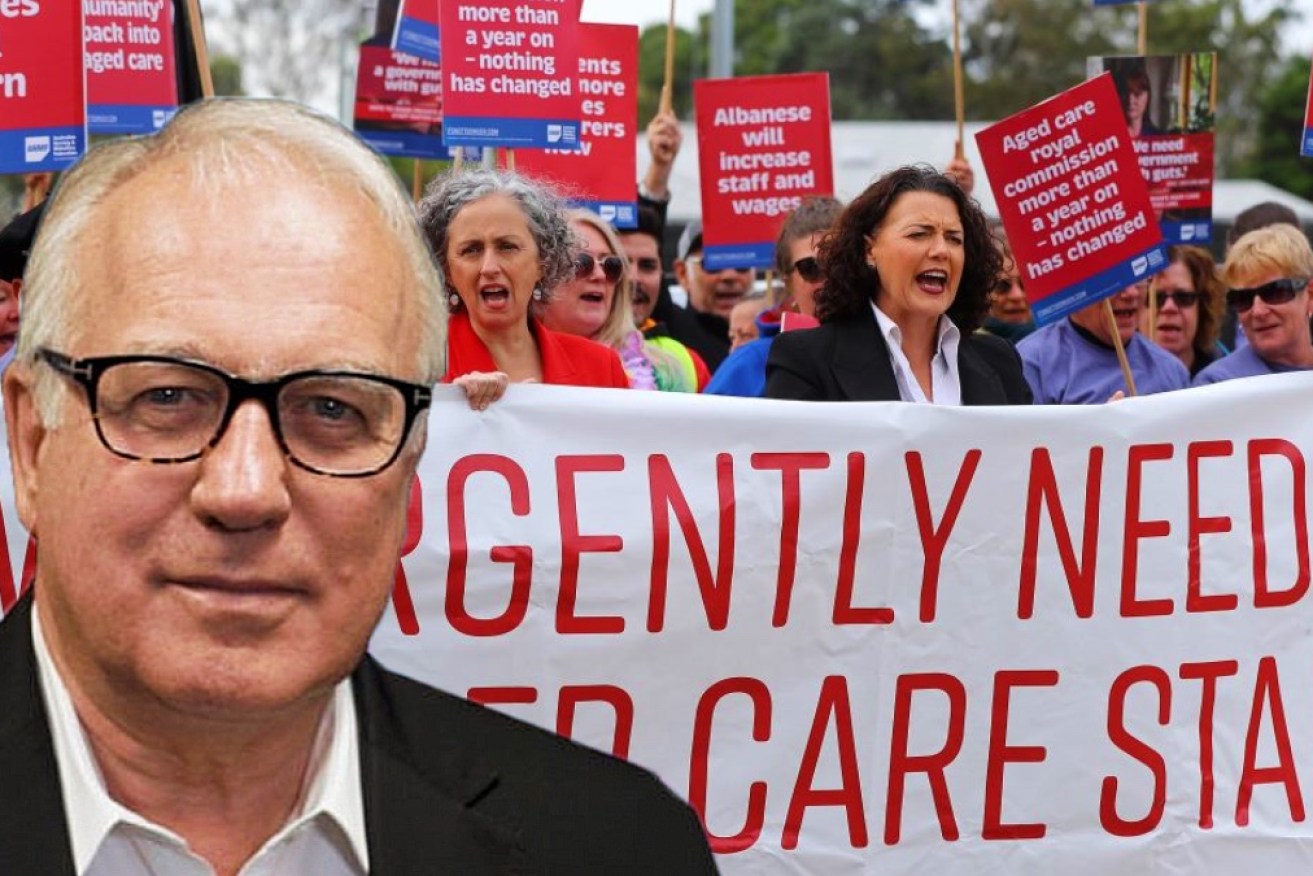Alan Kohler: The right to strike, and recessions we have to have


The right to strike presents a wages conundrum, writes Alan Kohler. Photo: TND, AAP
So we’re having a national debate about the right to strike.
It’s ostensibly about wages growth and “multi-employer bargaining”, but really, it’s about strikes and whether, as a society, we want to go back to having them.
And the surprising legislative moderator for the debate is Harvard-educated, African-born former rugby player, Senator David Pocock.
The government says it has a mandate to “get wages moving”, but strikes weren’t mentioned in the campaign, and still aren’t, so how far that mandate goes is moot.
Employers say, in effect, that they’re happy to get wages moving as long as they do it off their own bat, and are not forced into it by their staff going on strike, invoking the grim days of the ’70s and ’80s to support their case.
Unions are explicitly demanding the right to strike; ACTU secretary Sally McManus said that without it workers’ bargaining power is “reduced to almost zero”.
The Reserve Bank says it’s worried about a wage-price spiral.
Treasury says there isn’t one of those, and won’t be one.

David Pocock is ‘not there yet’ when it comes to the proposed workplace reforms.
David Pocock, and his fellow independent senator, Jacquie Lambie, say they are worried about small business, although Senator Lambie has effectively ruled herself out of the game by implacably opposing the bill for that reason.
Senator Pocock is negotiating, and says: “I’m not there yet”.
A cleaner said “we’re desperate”, at a town hall meeting run by Senator Pocock and Employment Minister Tony Burke at Gunghalin Theatre in Canberra on Thursday night, for which he apparently got the biggest round of applause of the night.
The right to strike is simple …
Most people in the street would probably say the right to strike is fine, as long as it doesn’t interfere with my life, adding: “I think workers in child care and aged care should be paid more, for sure, as long as I don’t have to look after my own kids or elderly parents”.
I say, it’s both simple and complicated.
The right to strike is enshrined in international law and moral theory and practice, but Australia has consistently ignored that and effectively outlawed them.
Sally McManus is right that unless they can go on strike, workers effectively have no bargaining power.
Individual agreements are mostly coercion, and in enterprise agreements the bargaining power is limited because a strike against an individual company tends to weaken that company against competitors still operating.

Without the right to strike, workers have no bargaining power, says Sally McManus.
In any case, the hoops that workers have to go through under the current Coalition legislation make it virtually impossible to go on strike; Tony Burke’s bill doesn’t remove all the hoops, just some of them. It will still be hard, and also Senator Pocock is likely to succeed in protecting small business.
By the way, small businesses are not universal paragons of industrial fairness – in fact they are often the worst offenders, while big businesses are sometimes the best. Exempting small business is just politics.
Also, strikes are often aimed as much at customers as business owners and managers.
For example, in child care and aged care, we don’t pay enough for those services which is why the mostly female workers aren’t paid enough to provide them.
… but complicated
On the other hand – and this is one of the complications – profiteering and the driving of Bentleys and Ferraris is not unknown in those industries, so an increase in price won’t necessarily find its way to the workers.
Which is why, in the absence of much tighter regulation, a strike is probably needed in child care and aged care to even up the balance of power.
Another complication is economic: We really, really don’t want a wage price spiral leading to even higher interest rates, a housing collapse and recession.
With official wage growth at 3.1 per cent and inflation at 7.3 per cent, we’re a long way off that right now. But inflation is likely to decline pretty quickly next year, and wages grew by 1 per cent in the September quarter, so 4 per cent annualised, and we’re likely to see wages grow faster than prices sometime in 2023.
Firms recover the higher cost of wages either through increasing prices or better productivity.
And one of the problems with wages growth in the past few decades is that new technology has not resulted in better productivity.
Look at my industry of journalism, for example. The last great journalists’ strike of 1980 went for six weeks over the introduction of computers and video display terminals (I had to drive taxis because we’d just bought a house).
The newspapers kept getting published by management labour and I think we ended up getting a measly 6 per cent VDT allowance.
But if deadline times are an indicator of productivity, it got worse. With human compositors the deadline was midnight and beyond; with computers it’s mid-afternoon.
The great productivity decline
In general, productivity growth has declined in the past 20 years from 2 per cent a year to 1.2 per cent, and the great technological revolution that has brought such wonders of efficiency as Microsoft, Apple and Amazon has simply not improved overall labour productivity at all, and boffins the world over are scratching their heads trying to work out why.
I suspect the simple answer is that we have 3.4 per cent unemployment, the lowest in 48 years, so it is obvious that robots are not yet replacing workers overall, as predicted.
Factories are full of robots these days, but the workers displaced by automation, and by Chinese factories, have gone from making goods to providing services, which are mostly less productive industries.
Anyway, unless productivity can be suddenly improved, which is unlikely, any success the government has in “getting wages moving” by improving workers’ bargaining power will lead to higher prices unless it comes out of companies’ profits.
And the government’s bill will do little to reduce the ability of companies to raise prices. In fact, the thing about multi-employer bargaining is that if all the companies in an industry get hit with a simultaneous wage hike, they can and will increase prices as one, without colluding. A single business negotiating an enterprise agreement can’t do that.
We had to have the 1991 recession we had to have because a wage-price spiral was brewing and needed to be stomped on by the (non-independent) Reserve Bank raising interest rates to the stratosphere.
The number of strikes had already declined from a peak 1000 days lost per 1000 workers in 1974 to around 200 per year in the late 1980s, but still, we had to have a recession.
That looks very unlikely as 2022 draws to a close, but the Reserve Bank is watching, finger on the trigger.
Alan Kohler writes twice a week for The New Daily. He is also founder of Eureka Report and finance presenter on ABC news.








